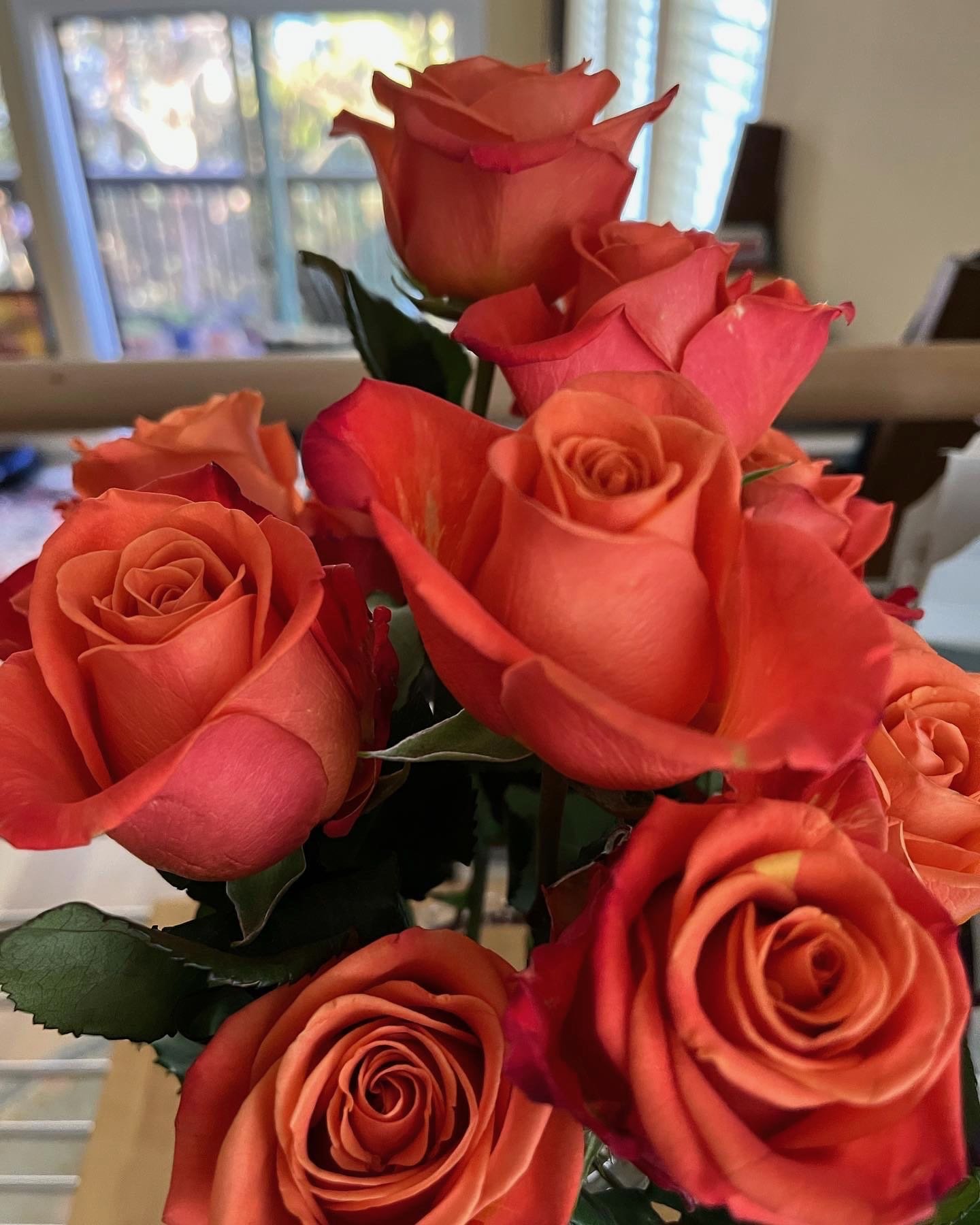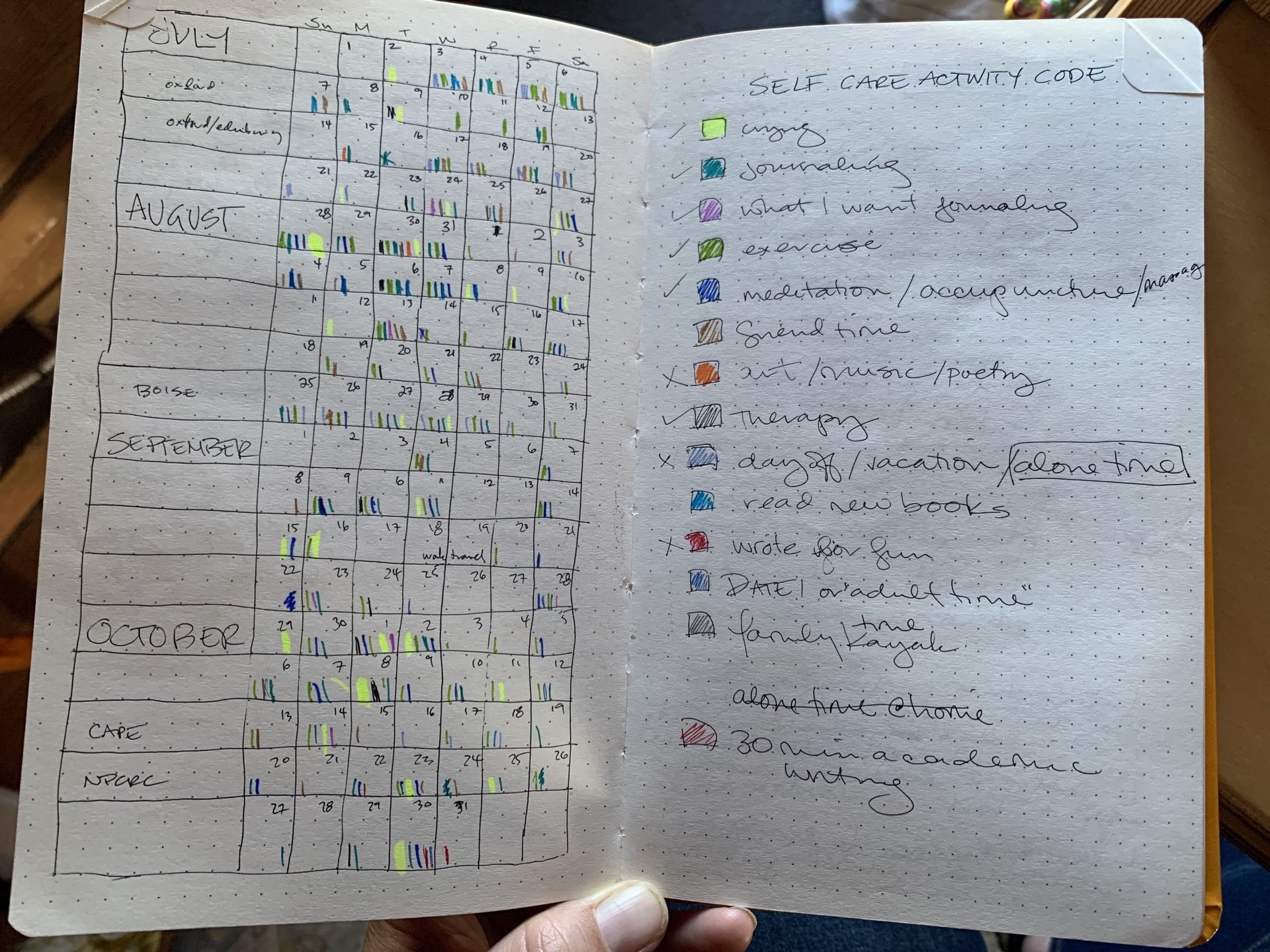
Navigating Grief
Welcome. I’m sorry you have cause to look at this page. Early, acute grief can be so bewildering - your brain and body are desperately trying to learn this new unfortunate reality. You may have had other losses in your life that you did not have to grief, or were not able to grieve. And yet now you may be trying to learn a new vocabulary of grieving, a new way of being. What does it mean to “process” a loss? Or feel feelings? What is normal grieving?
I am not a clinician or grief counselor - I am a griever and a researcher. As such, I’ve collected a list of books, podcasts, and websites I have found helpful in my own grief journey and shared them the Grief Resources page. I also provide links to the essays I’ve written and published in other venues about my own loss experiences. I’ve found grief podcasts particularly helpful, as hearing about others’ experiences helps me gather potential “grieving tools” that I may want to add to my own toolbox. I often find the most proximate experiences most helpful to learn from (for me, that’s someone whose father died suddenly, while they were also a parent to a young child). I do my best to ignore “shoulds” and quickly discard what doesn’t resonate for me, in this particular season of life. I hope you can be gentle with yourself.

Gifts for grievers
Someone you know has just experienced a loss, and you’re wondering what to do. Here are some ideas for the first few months after a loss.

Resources for grieving
These are books, websites, podcasts, and other resources I have turned to in learning how to grieve and for making sense of my losses.

Menu for a grief week
I have developed a habit of taking the week before not-birthdays and deathaversaries off from work, with varying success over time. Each time, I create a “menu of activities” to provide some structure. Folding a horizonal piece of computer paper in thirds, I create three headings: self-care, home, and work.

Navigating grief triggers
It’s mid-September but my nearly-5 year old has started talking about Halloween already. My heart sank. My grief season has started.

Making space for grief
There are months where I forget to journal or track self-care, but in general I’ve kept up the habit of tracking daily investments in self-care for the last three years. It helps me to have this analog visual tracking system. The menu shifts over time based on what I’m finding useful.

Honoring not-birthdays
Thursday was not my father’s 71st birthday. I had rough plans for how I wanted to honor the day.


Joy & grief intertwined
For the journey in which I've had to really learn the vocabulary and actions of grief, I've also had to make piece with the intertwining of joy and pain. Theo has always made us laugh, and he was just under 2 when my dad died. In contrast to “toxic positivity”, which I think of as denying space for the hard stuff in the name of constantly identifying a silver lining, this was more parallel processing.

Physical memories of Grief
I made a strange discovery this spring/summer. I started working seriously on writing a big grant, an R01 (~$500k/year for 5 years to conduct research). I noticed I kept having overly strong reactions to presenting and receiving feedback on early drafts (overwhelm, despair, self-doubt). One time this reaction bubbled over into tears. After changing my afternoon schedule to go for a peer-mentoring hike with a friend-colleague (thus giving the backburner of my brain time to work), I made a realization. This was grief.

Physical manifestations of grief and stress
Stress and anxiety is not always visible or consciously experienced.
Early in the pandemic, I was reading about kids reacting to stress. and sleeping issues were one example, as was enacting superhero stories (both very prominent in our family). Canker sores were another example, which manifested for me in the first week of the pandemic, even though I wasn't consciously noticing stress. I've also heard many stories of kids or parents being extraordinarily clumsy, which is another sign.

Grief high tides and time off
I’ve repeatedly rediscovered that time off from normal schedules means destabilization for me and other members of my family. I attribute this to a) having to function in acute grief amid our normal (intense) academic work & childcare routines, such that loss of them is disconcerting, and b) the intensity of that schedule meaning that grief can sometimes pile up in the background, unacknowledged. As said in this GriefCast podcast with Amanda Palmer, “grief waits until it can be heard”.

Grief || Public Health
At times when my grief over my dad and stepdad were more at the surface, I haven’t wanted to interact with friends whose fathers are alive and in their life. I’ve recently realized that this is analogous to how I am now feeling with friends whose pandemic behaviors are significantly deviating from ours.

Resilent grieving
I’ve been re-reading the book Resilient Grieving (I think I’ve bought 4 copies now because I keep giving it away) and came across this great quote that resonated: “…resilience enables us to feel pain (and anger, anxiety, guilt) and to move through these emotions so that we can continue to feel joy, awe and love. Fundamentally, resilience is about marshaling what is within us to make it through, and maybe even transform, what is before us.”

Unmoored from routine
I’ve learned grief emerges for me when normal structures are removed and in life transitions. Part of this is because the work (and daycare) routine kept me upright and busy (for better or worse) during acute grief. Now, when those norms fall away, I sometimes fall apart.

On memory, memoir, and grief
This is the opening section of an essay I started the night my stepfather died, which was ultimately published in JAMA this past August, nearly 3 years later. People have asked me if it was hard to write, or cathartic. It was neither. It felt like a search to find the precise words to describe the experience of having a boulder catapulted through the fabric of my being. Stories have beginning and middles and ends, yet I often I feel like I’m looking at a pile of middles and shredded mismatched edges. My father was a high school English teacher and he taught me that essays are attempts. So this is essay was one of the attempts I keep making to make sense of the experiences, to tack down loose edges or weave in the fraying pieces.

Third deathiversary
The fall has become my least favorite season though Bay Area weather is often at it’s finest in September and early October. It’s a season of grief triggers. This year is the third anniversary of life changing.

Supporting the grieving
Advice for supporting the grieving
Ask permission: to bring the topic up, to help notify people, to rally support. Revisit every 3 months or so to see how needs and wants have changed.
Don’t ask how the person is doing, at least while feelings are acute and the person may be fragile. Try to figure out a more answerable question: how intense are the emotions today? How’s your concentration today?

Acute grief at work
These are ideas for people waiting helplessly for updates from far away or for people who are grieving. There are a lot of healthy ways to cope, including toggling between “pretending to be normal” and feeling feelings. Everyone experiences each loss differently.